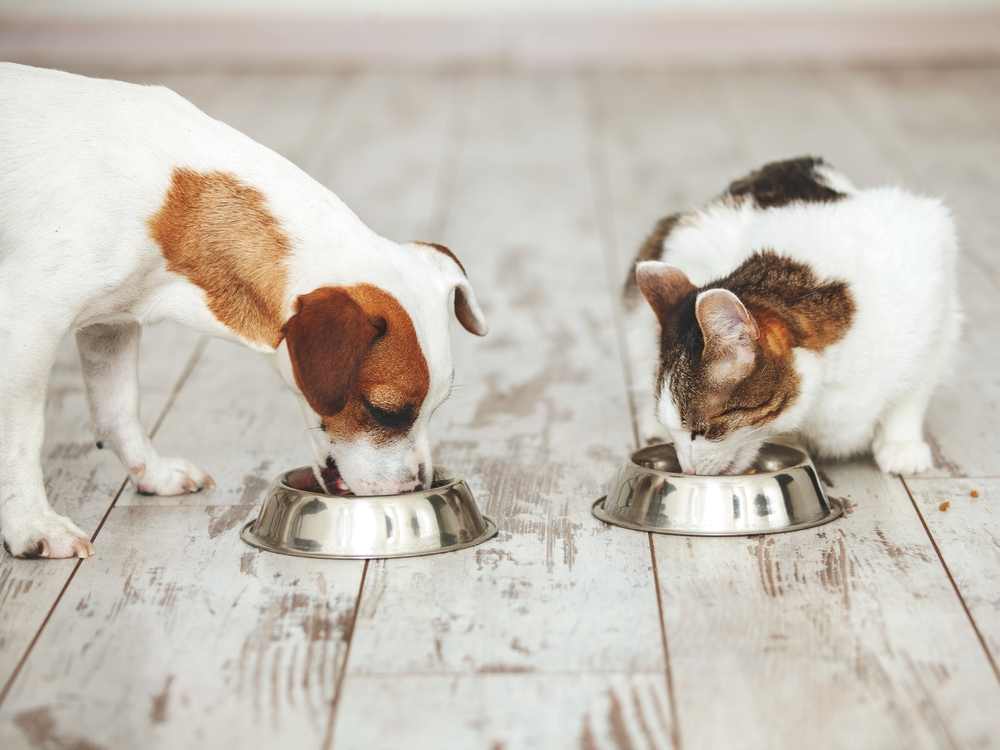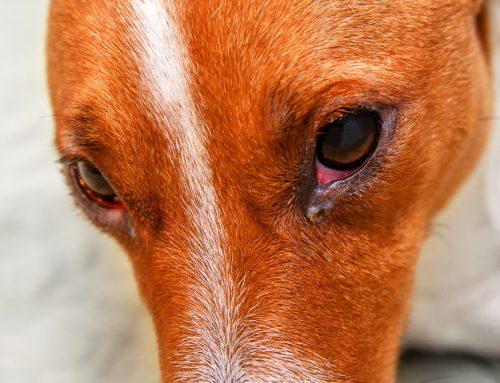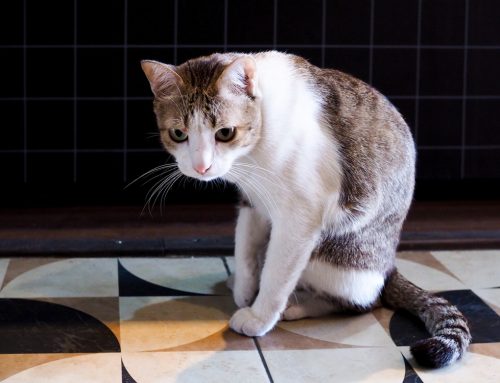Our Tamberly Animal Hospital team knows pet nutrition can be confusing, with many myths floating around. As a dedicated pet owner, you want the best for your four-legged friend, but being able to separate fact from fiction is tough. We debunk common pet nutrition myths, from beliefs that wet food causes obesity to views that pet food recalls mean all a manufacturer’s foods are bad. Ready to uncover the truth about your pet’s diet?
Myth 1: Wet food causes obesity in pets
Many pet owners avoid feeding their furry friends wet food, fearing it will make their pets fat. However, obesity is more about portion control than food type. Wet food can be a healthy part of your pet’s diet. It often has a high water content and can be more filling than dry food, potentially helping with your pet’s weight management. Wet food can also benefit pets with certain health conditions, such as urinary tract issues, as it promotes hydration. So, if your pet is packing on the pounds, the wet food is not their problem—it might be the extra treats they are getting on the side.
Myth 2: Pet food storage doesn’t affect its nutritional value
Leaving pet food out in the open might seem convenient, but doing so can degrade its quality. Exposure to air, light, and humidity can reduce a food’s nutritional value and even cause it to spoil. Proper pet food storage is crucial for preserving the food’s vitamins and minerals so your pet gets the nutrition they need. Store dry food in a cool, dry place and wet food in the fridge after opening. Think of it as storing your favorite snacks. Nobody wants stale chips, and your pet feels the same about their kibble.
Myth 3: Pet food recalls mean all products from that brand are bad
A recall can be scary, but you don’t have to boycott a brand forever. Recalls happen for various reasons, often as precautionary measures. They can range from minor labeling errors to potential contamination issues. Understanding the reason behind a recall can help you make an informed decision. Rather than panicking, check the recall details and talk to our Tamberly Animal Hospital vet who can guide you on whether you need to switch brands or you can stick with your pet’s usual diet.
Myth 4: By-products in pet food are unhealthy
By-products often get a bad rap, but these ingredients are a nutritious pet food component. They include animal parts that are less common in people’s diets but are packed with nutrients such as organs and bones. These parts are often rich in protein, vitamins, and minerals that are vital to your pet’s health. So, next time you see by-products on the label, remember you’re not feeding your pet mystery meat; it’s about balanced nutrition.
Myth 5: All human foods are safe for pets
Sharing is caring, but not when it comes to food. Many human foods are harmful to pets. For example, chocolate, grapes, onions, and some spices can be toxic to pets. Before giving your pet a taste of your meal, double-check that the ingredients are safe for them. When in doubt, stick to feeding your pet treats designed with your furry friend’s health in mind.
Myth 6: Grain-free diets are better for pets
Grain-free diets have gained popularity but may not be the best choice for pets. Some studies have potentially linked grain-free diets to dilated cardiomyopathy (DCM), a serious heart condition in dogs. Grains can be an important nutrient source, so if your pet doesn’t have a specific allergy or intolerance, you do not need to avoid feeding them grains. Always consult our vet before significantly changing your pet’s diet.
Myth 7: Veterinarians only recommend certain pet foods for profit

The common misconception that veterinarians push specific diets to make money is just that—a myth. In reality, veterinarians recommend diets they know are best for pets’ health. These recommendations are often backed by scientific research and tailored to address a pet’s specific health issues such as allergies, weight management, or chronic conditions. At Tamberly Animal Hospital, your pet is our pet. We suggest a specific diet because we believe the food will truly nourish and benefit your furry friend.
If you have questions or concerns about your pet’s diet, reach out to our caring Tamberly Animal Hospital team. We’re here to help you navigate the pet nutrition world and keep your furry family member happy and healthy. Our team is always ready to provide personalized advice and recommendations tailored to your pet’s unique needs. Give us a call today or request an appointment online. Let’s keep your pet on the path to optimal health.







Leave A Comment